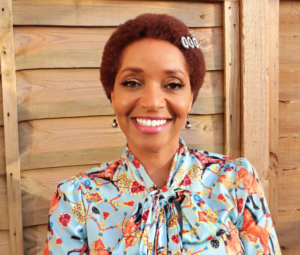The Menopause
Menopause or ADHD? Here’s everything you need to know
If you’ve googled ‘do I have ADHD?’ at some point in the last year, you’re probably not alone.
Awareness of ADHD – or attention deficit hyperactivity disorder – has gained serious traction in recent times thanks to social media platforms like TikTok. What’s interesting to note, however, is that ADHD diagnoses in midlife women are on the rise.
What’s more, many of the symptoms associated with ADHD overlap with those often seen in menopause. But is there a link? And how can we differentiate between the two? To find out more, we spoke to Dr Shashi Prasad, a specialist in integrative women’s health and bioidentical hormone balancing for the Marion Gluck Clinic.
What is ADHD?
ADHD can impact people in different ways, but most commonly it causes difficulties in staying focused, organising tasks and/or managing time effectively. Previously, diagnosis has often centred around young people, particularly boys, but this oversight has led to many women finding themselves coping with undiagnosed ADHD well into adulthood.
While there is no direct cause of ADHD, experts suspect that the hormonal fluctuations associated with menopause can trigger ADHD symptoms to worsen. This has led many women to seek a diagnosis from their GP.
“Attention deficit hyperactivity disorder is a neurodevelopmental disorder that’s more commonly associated with childhood,” says Shashi. “However, ADHD can persist into adulthood, and menopausal women suffering from this condition may experience unique challenges.”
Symptoms of ADHD often vary from person to person, but some common signs include:
- Difficulty organising tasks and activities
- Struggles in sustaining attention or easily becoming distracted
- Making careless mistakes or overlooking details
- Frequently losing or misplacing items necessary for tasks
- Being forgetful in daily activities
- Restlessness or an inability to remain seated
- Excessive talking or difficulty staying quiet in appropriate situations
- Feeling a constant need to be in motion or ‘on the go’
- Interrupting or intruding on others’ conversations or activities
- Difficulty waiting for one’s turn in conversations or games
- Impatience and difficulty delaying gratification
There are many subtypes of ADHD, but it’s important to know that specific symptoms may change over time as many people learn coping mechanisms, tweak their environment or receive treatment.
How does ADHD impact women during menopause?
“Women who have managed their ADHD symptoms effectively all their lives may find their treatment or coping mechanisms are not working as well during the menopause transition,” says Shashi.
“The hormones oestrogen and progesterone play significant roles in the functioning of our brain and affect our ability to focus and concentrate, along with attention regulation, verbal memory and other nerve functions. They also play a huge role in emotional control.
“Low or fluctuating hormone levels can cause mood swings, irritability, anxiety, low mood, anger, brain fog, difficulty focusing or concentrating, or difficulty in completing a task, and this can then lead to increased ADHD symptoms in midlife.”
Challenges during our midlife years, such as increased work responsibilities or caring for elderly parents, can compound the impact of ADHD symptoms too. Some women with ADHD may experience difficulties in meeting deadlines, managing household tasks, maintaining strong social connections, or finding a healthy work-life balance. This can lead to feelings of frustration and self-doubt, causing further stress and anxiety.
“There is a definite overlap between ADHD symptoms and those due to hormonal fluctuations during menopause transition,” says Shashi. “It can be difficult to differentiate between the two so it’s very important for women to see their doctor and request a referral for ADHD assessment if they note symptoms.”
“I would advise women who are in their 50s to check their hormones to avoid misdiagnosis”
 Karime Harris, 55, a business psychologist and executive coach at Talking Talent, explains how she manages her ADHD diagnosis and what she’d tell anyone who suspects they have the condition.
Karime Harris, 55, a business psychologist and executive coach at Talking Talent, explains how she manages her ADHD diagnosis and what she’d tell anyone who suspects they have the condition.
“I wondered if something was different about me my whole life. My twin brother is dyslexic and, although I had an IQ test as a child and was above average, there was something about my brain that meant I wasn’t able to remember certain things.
“I was also very active and sitting still was often difficult for me. I was either tapping my feet on the floor or wringing my hands – something that I continue to do this day!
“We’re living in a very interesting time right now when it comes to late ADHD diagnosis. I think there are a lot of similarities to what women go through with the menopause. I’d advise women who are in their 50s to check their hormones to avoid misdiagnosis, as those changes can look similar to ADHD.
“To those who have a professional diagnosis, take the time to be kind to yourself. I cried when I got my diagnosis, but you’ll learn to come to a place of acceptance.
“Sleep and daily exercise burn off some of the energy that comes with ADHD. I also have a few amazing girlfriends that help me regulate and allow me to be myself.
“I know I have to put in more effort than others when it comes to keeping organised, memorising things and managing my energy and life in general, but I have learned to do that by creating systems and processes that serve me well.”
Read more features like this
- Watery eyes? Here’s why it could be the menopause
- 7 effective strategies to cope with anger during the menopause
Words: Stacey Carter





